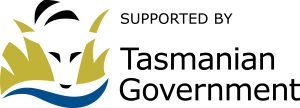- Services
- Events, News & Research
- Events, News & Research
- Social Action & Research Centre
- Social Action and Research Centre
- The poker machine card. Simple as.
- Gambling Research – What’s the Real Cost?
- Action for a healthier community: An effective response to illicit drugs
- Financial Wellbeing Research – Buy Now Struggle Later
- Rental Affordability Snapshot
- Unaccompanied Homeless Children in Tasmania
- Young, in love and in danger
- About Us
- Careers
- Contact Us
Call us 1800 243 232
Menu
Call us 1800 243 232
- Services
- Events, News & Research
- Events, News & Research
- Social Action & Research Centre
- Social Action and Research Centre
- The poker machine card. Simple as.
- Gambling Research – What’s the Real Cost?
- Action for a healthier community: An effective response to illicit drugs
- Financial Wellbeing Research – Buy Now Struggle Later
- Rental Affordability Snapshot
- Unaccompanied Homeless Children in Tasmania
- Young, in love and in danger
- About Us
- Careers
- Contact Us



